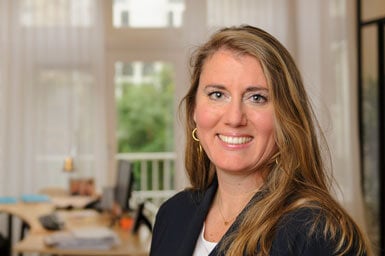News
Franchise prognoses: the dutch supreme court clarifies its standpoint, but it is not groundbreaking
5 april 2017 – Tessa de Mönnink
This is being interpreted by some franchise experts as being a major shift vis-à-vis the as yet leading 2002 Paalman Lampenier arrest (ECLI:NL:HR:2002:AD7329, NJ 2003/31). After all, the Supreme Court then ruled that a franchisor acts unlawfully when providing a prognosis knowing that it contains serious errors and keeping silent about them. This case was, however, – totally – different, because the prognosis in the Paalman Lampenier arrest had been drawn up by a third party. Not so strange that the Supreme Court had reservations in holding the franchisor responsible for the errors made by a third party.
The present Street-One case is about a prognosis drawn up by the franchisor himself, which contained errors. It was an unsound prognosis based on mistaken or incomplete principles causing the prognosticated results to be unachievable. The Supreme Court argues on this literally (R.O. 5.3):
“In the Paalman/Lampenier arrest, the Supreme Court argued that the franchisor, who presents a report to his counterpart about the revenue and profits to be expected, is acting unlawfully in the circumstances if he or she knows that this report contains serious errors and does not draw his counterpart’s attention to these mistakes. This rule applies to the case relevant to that arrest, in which the franchisor has outsourced the examination and drawing up of the report based on the examination to a third party. Normally speaking, the franchisor can then trust its correctness, so that in principle there can only be grounds for negligence on his part in case of knowledge as indicated previously.
The latter is different when the franchisor himself, or an individual for whom he is accountable on the basis of .one of the articles 6:170 – 6.172 BW (Civil Code), conducts the examination and presents its results to his counterpart. In those circumstances, too, there can be carelessness without the franchisor (or the person for whom he is accountable) knowing that the report contains errors, in case carelessness on the part of the franchisor (or the person for whom he is accountable) has led to the errors in the report.”
The Court’s ruling does not appear to be surprising and even less a departure from the past. After all, one cannot compare apples to pears.
It is, of course, important that a franchisor is careful when providing prognoses. Just as it is important for a franchisee to conduct his own research. If results then lag behind, this cannot automatically be attributed to the prognosis; it can be caused by all kinds of circumstances. In this context, the arrest of the Amsterdam Court of 14 February 2017 is referred to, in which the Court severely criticized the franchisee for not conducting any investigation himself and completely depending on the results of just one branch used by the franchisor “Tot Straks”. Franchisee could therefore not assume that the revenues as mentioned by Tot Strakscontained a realistic prognosis based on market research. According to the Court, this is even more the case since it was a relatively new franchise formula causing reliable data on the revenue to be paid not yet to exist. In short, not all statements uttered by a franchisor about the revenue or profit to be expected lead to a revenue prognosis that a franchisee can rely on.
